15 Best Ceramic Classes in Japan for English Speakers
by Tabitha Wilders | TRAVEL
© Shin Koenji Kintsugi
Pottery is one of Japan’s most influential, historical and luckily accessible art forms, so much so we've covered a number of facets of the county’s ceramic history. from some of the finest Japanese artists to the best towns to discover ceramic art. But if you’re more interested in getting behind the (pottery) wheel than staring at pieces displayed behind glass, then book yourself a session at one of these very diverse, English-friendly pottery classes.
Tokyo
There’s something for everyone in Tokyo, whether you’re looking to buy ceramics, tea, art, or anything else you can imagine! Try your hand at ceramic classes in Tokyo with these top recommendations:
1. Shirogane Ceramic Art School
For those completely new to ceramics, the Shirogane Ceramic Art School offers a one-day trial course, perfect for those interested in pottery but unsure of their abilities. With guidance from supportive teachers, participants have the opportunity to create everyday items such as teacups, bowls, dishes, vases, shochu cups, and more. Who knows? You may discover a natural talent or desire to master ceramics, prompting you to consider signing up for the monthly membership course. Additionally, the art school offers a summer vacation ceramic art trial for kids.
Price: ¥5,500
Time: 1 hour 30 minutes classes run between 10am- 10pm, Friday, Saturday, Sunday and 10am- 6:30pm, Monday, Tuesday, Thursday
Address: Shirokane 5-13-4, Minato Ku, Tokyo (see map)
Web: sirokanetougei.com
2. Atelier Little Pottery Studio
A pottery studio renowned for its intimate and cozy ambiance, Atelier Little is a favored destination for both pottery enthusiasts and novices alike. Here, you can delve into the realm of traditional Japanese pottery techniques, including wheel throwing and hand-building, all under the expert guidance of experienced instructors. Beyond regular classes, Atelier Little hosts a variety of special events, exhibitions, and pottery sales, providing visitors with the opportunity to acquire one-of-a-kind handmade ceramics crafted by the studio's talented artists.
Price: For information on prices, DM on Instagram.
Time: 11:30am-4:30pm, Tuesday, Wednesday (other irregular opening hours, please check instagram)
Address: 2-30-13 Kichijoji Higashicho, Musashino, Tokyo (see map)
Web: instagram.com/little07tokyo
3. Taku Nakano Ceramic Arts
Discover the artistry of Taku Nakano at his Omotesando studio in Tokyo.Renowned for his avant-garde approach to ceramics, Taku infuses each vessel with his unique worldview, creating pieces unlike any other. Join his pottery classes for a hands-on experience in traditional Japanese pottery techniques, or commission a bespoke creation for a special occasion. From one-day workshops to advanced sessions, there's something for everyone to explore the world of pottery. Unleash your creativity and be part of Taku Nakano's innovative journey in crafting ceramics that stand out in the cutting-edge fashion scene of Omotesando.
Price: For information on prices, go to the inquiry page
Time: Classes run everyday at 11am, 1pm, 3pm, 5pm.
11am-7pm, Monday, Tuesday, Thursday, Friday, Saturday, Sunday and 11-9pm on Wednesday
Address: 3-8-2 B1 Minami Aoyama, Minato-ku, Tokyo (see map)
Web: tnca.tokyo
4. Uzumako Ceramic Art School
© Uzumako Ceramic Art School
For those with only a little time to really pack in everything there is to see and do in the city, then Uzumako Ceramic Art School may be the school for you. The one-hour classes offer a comprehensive, but condensed, ceramic experience which will allow you to make around two to four pieces within the hour. Beer mugs, bowls, vases, it’s all covered here, making this a great choice. If you’re wanting to try something a little more extravagant there are more complex extended classes available too. Once your item is finished it’ll be shipped to you within around a month.
Price: Start at ¥3,500 per class, family bookings get discounts
Time: One hour class
Address: Shimizu House, Shiba 3-29-11, Tokyo (see map)
Web: uzumakotougei.com
5. Panda Sensei
© Panda Sensei
If you’re planning an extended stay in Tokyo and want to really immerse yourself in a longer, more rewarding ceramic experience, consider taking it slow and signing up for a few classes with Panda Sensei. There are single class options available too, but return visitors can try their hand at a number of different ceramic projects. Unlike many more tourist-focussed classes, Panda Sensei is young and his approach to ceramic creation is a little more contemporary. You can learn to craft chopstick holders, vases, dishes, and miscellaneous items depending on what day you visit. Check out his website for a full guide to available pottery classes!
Price: ¥1,000 Sunday, ¥4,000 every other day
Time: Two-hour classes run between 10am- 7pm, Tuesday, Thursday, Saturday, Sunday
Address: Takarada Studio, Oi 4-20-7, Shinagawa, Tokyo (see map)
Web: panda-sensei.com
6. Shin Koenji Kintsugi
© Shin Koenji Kintsugi
An undeniably Japanese ideology of appreciating the beauty in even the most imperfect of items, kintsugi is the art of repairing broken ceramics by using lacquer dusted or mixed with powdered gold, ultimately making it even more beautiful, and more unique than the original item. In the trendy local neighborhood of Shin Koenji you can try your hand at crafting your own piece of repaired pottery by using kintsugi. The class is split into three sections, the first covers the theory and practice of Kintsugi, the second section is a tea break while you wait for your piece to dry, then the third part is when you can add all your finishing touches. Unlike regular ceramic pieces, items repaired using kintsugi only take about a day to dry so you can either return the next day to pick up your item or get it shipped home.
Price: ¥6,000
Time: Two hours, 10am-2pm
Address: Kuge Crafts, Narita-higashi 1-34-10, Suginami-ku, Tokyo (see map)
Web: teshigotoya-kuge.com
Kyoto
As Japan’s political and cultural capital for over 1000 years, it’s not surprise that this is a superlative place to buy and make ceramics. Find out Where to Buy Ceramics in Kyoto, or enjoy these 10 Best Cultural Activities for your Kyoto Itinerary. For Japanese ceramic classes in Kyoto specifically, read on…
7. Asahiyaki Pottery Class
Experience the rich tradition of pottery with Asahiyaki's esteemed classes in Kyoto. Rooted in Uji's 400-year-old tea pottery heritage, immerse yourself in serene surroundings along the picturesque Uji River. Asahiyaki offers two course types: regular classes for ongoing learning and one-time experiences to complete pottery work. With diverse courses suitable for beginners and enthusiasts alike, discover the joy of crafting your own tea bowls or vases under expert guidance. Embrace the tranquility of Kyoto's cultural landscape as you create timeless pieces to cherish. Join Asahiyaki's pottery class and embark on a journey of artistic expression in Japan's historic capital.
Price: ¥4,950-¥38,500 depending on class type
Time: 1 hour to 2 hours 30 minutes classes run between 10am- 5pm, Tuesday-Sunday (Closed on Monday and every last Sunday)
Address: Uji-Mataburi-67 Uji-shi, Kyoto (see map)
Web: asahiyaki.com
8. Engawa Craft Studio
Engawa Craft Studio in Kyoto offers immersive workshops encompassing traditional Japanese crafts such as pottery, calligraphy, and the tranquil tea ceremony. Tailored for beginners and experts alike, these sessions ensure an enriching experience. Skilled instructors foster an environment of ease and creativity, guiding participants through each craft's intricacies.
Step into the serene atelier of a budding ceramic artist to indulge in the joy of creation amidst tranquility and coffee. Embrace Japan's ethos of cherishing the simple yet exquisite in daily life, reflected in carefully crafted vessels available at the veranda's select shop as lasting mementos of your experience.
Price: For information on prices, contact by phone or email
Time: 30 minutes to 1 hour classes run between 10am- 5pm (Closed on Tuesday and Friday)
Address: 419-2 Kanei-cho, Higashiyama-ku, Kyoto (see map)
Web: craft-engawa.jp
9. Kiyomizudera Studio
© Taiken Kiyomizu
Located right by one of Kyoto’s most iconic landmarks, Kiyomizu Temple and right by the towering five-story pagoda Yasaka-No-Tou (Yasaka Pagoda) sits Kiyomizudera Studio, an elegant, minimalist traditional style Japanese ceramic workshop that looks like an interior designer’s ultimate dream. The main studio only offers classes in Japanese, however, there are some English classes available too in other studios. The workshop offers a range of different plans to suit those of all level of ceramic interest. If you just want to dabble and don’t have a lot of time to commit there’s the 20 minute light plan where you’ll make a small-sized cup. However, if you’re looking for something a little more comprehensive, go for the zuikou plan which runs for an entire hour and features a more comprehensive demonstration.
Price: ¥1,900 - ¥4,900
Time: 20 minutes - 1 hour
Address: 385-5 Yasaka Kamimachi, Higashiyama-ku, Kyoto (see map)
Web: taiken-kiyomizu.com
10. Oogoya
Technically a little out of Kyoto, but still close enough to be added to the Kyoto section of this list, the town of Shigaraki’s Oogoya Ceramic Center is a ceramic shop, cafe, restaurant, and pottery workshop all rolled into one. The classes at Oogoya are dedicated to the area’s own special form of ceramics, known as Shigaraki-ware. There are a few different classes available including hand forming, pottery wheel ceramic making, and just ceramic painting. All the classes take around 50 minutes and will take you through the many different pottery techniques perfected in Shigaraki.
Price: From ¥1,500 - ¥3,000, depending on the course.
Time: 50 minutes
Address: 2349 Chokushi, Shigaraki-cho, Koka-shi (see map)
Web: oogoya.co.jp
Osaka
11. Ceramic Studio Tougei Tocoton
Ceramic Studio Tougei Tocoton in Osaka offers immersive pottery workshops led by a multilingual potter fluent in English, Spanish, Catalan, and Japanese. Choose from sake sets, chawan, or sushi sets, delving into Japan's culinary heritage. Enjoy personalized instruction in a century-old wooden house, providing an authentic glimpse into pre-World War II Osaka. Craft your pottery using traditional methods, learning about Japanese culture from Anna, Ryo, and their team. Discover hidden gems beyond tourist guidebooks on the journey from the station to the studio and take home souvenirs of your experience.
Price: For information on prices and to make an appointment, contact by email
Time: Classes run between 10am- 6pm (Closed on Friday and Sunday)
Address: 2-7-17 Ikunohigashi, Ikuno Ward, Osaka (see map)
Web: tougei-tocoton.com
Outside the Cities
If you really want to experience Japan and Japanese ceramic art, you need to head out of the cities. The history of pottery in Japan grew from smaller towns, many of which are still producing world-class work. Check out these 6 Best Japanese Ceramic Towns You Should Visit. While you’re exploring, give it a go yourself at these top spots:
12. Ishigaki-yaki Pottery Studio
Ishigaki-yaki Pottery Studio, nestled in Okinawa, embodies the spirit of traditional Japanese pottery. Visitors are invited to delve into the artistry of Ishigaki-yaki, a distinctive pottery style unique to the region. Led by skilled artisans, the studio offers hands-on workshops where participants can experience the intricate techniques involved in crafting Ishigaki-yaki pottery. From shaping the clay to applying intricate designs, visitors gain insight into the rich cultural heritage embedded in each piece. Immerse yourself in Okinawa's vibrant culture as you create your own pottery masterpiece. Whether you're a novice or a seasoned enthusiast, Ishigaki-yaki Pottery Studio promises an unforgettable journey into the heart of Okinawan craftsmanship.
Price: ¥5,500
Time: 1 hour to 1 hour 30 minutes classes run at 10am, 1pm, and 3pm, every day.
Address: 1356-71 Nagura, Ishigaki, Okinawa see map)
Web: ishigaki-yaki.com
13. Mashiko Ceramic Art Club, Tochigi
© Mashiko Ceramic Art Club
We mentioned immersive ceramic experiences earlier, but really it doesn’t get much more immersive than this, a Japanese ceramic workshop complete with accommodation facilities. Nestled in nature abundant pottery town of Mashiko, Tochigi’s ceramic hub, Mashiko Ceramic Art Club is a laid-back folk style retreat. Although the website is in Japanese, the staff here do speak English. Given the location and commitment needed to book a stay at this workshop, it’s best for those who are serious about their ceramic pursuits. For information about the accommodation, contact the facility directly through the website.
Price: ¥3,700 - ¥5,800 depending on the length of the class
Time: Three-hour morning and afternoon classes, full day classes
Address: 3288-6 Mashiko,Tochigi (see map)
Web: mashiko-tougei-club.jp
14. Kutani Kosen Kiln
© Kutani Kosen Kiln
Located in the craft-loving city of Kanazawa, the Kutani Kosen Kiln is the only ceramic kiln in town dedicated to Kutani-ware, a special local type of pottery which originated from Kaga, Ishikawa. If you’re more interested in flexing your painting skills than your ceramic talents then this is the class for you. At Kutani Kosen Kiln there are around 15 different ceramic pieces for you choose from, all the pieces have already been carefully and professionally crafted ready for you to paint.
Price: ¥1,300 - ¥5,400
Time: One hour
Address: 5-3-3 Nomachi, Kanazawa, Ishikawa (see map)
Web: kutanikosen.com
15. Goens
For something a little off the beaten track, consider making a weekend trip from Tokyo to Kanagawa to try your hand at a little ceramic sculpting by the beach. The Goens workshop offers two classes, one painting, and one pottery class. There are details directly on the website, but if you can’t read Japanese, then it’s best to book via Activity Japan, which is in English. The class involves a demonstration, shaping, firing, and painting is possible too if you’re feeling extra creative.
Price: ¥4,000
Time: Approx. 2 hours
Address: 1847-40 Yoshihama, Yugawaramachi, Ashigarashimo-gun, Kanagawa (see map)
Web: goens.jp





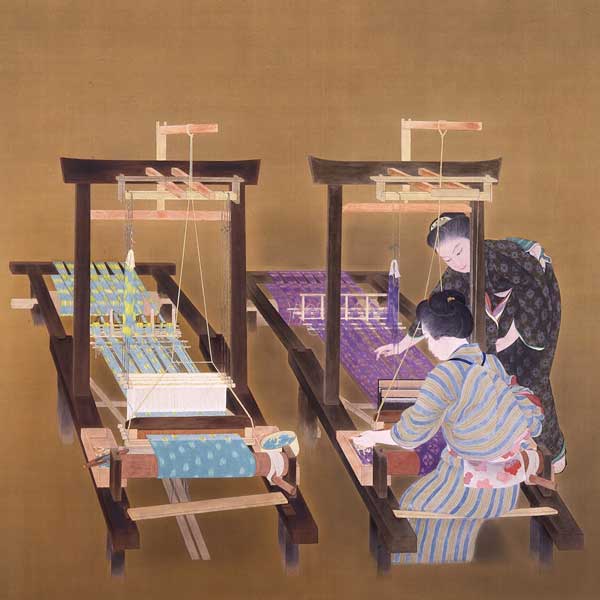
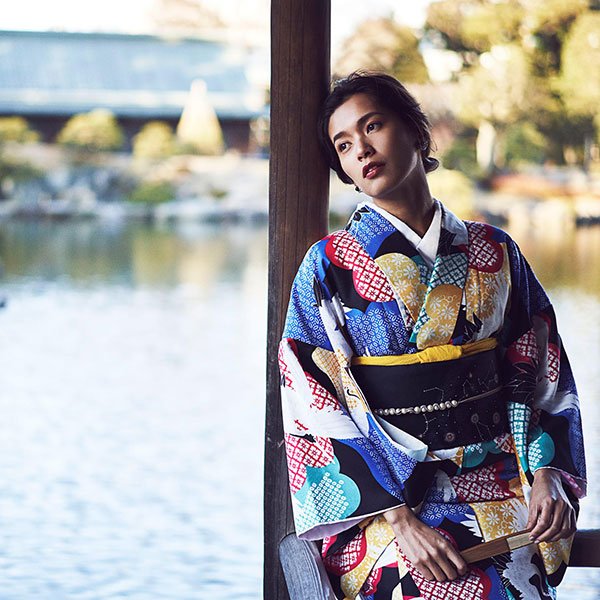
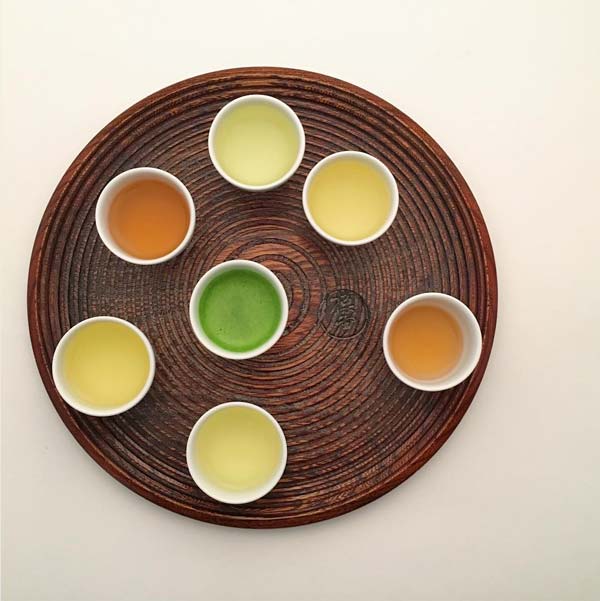


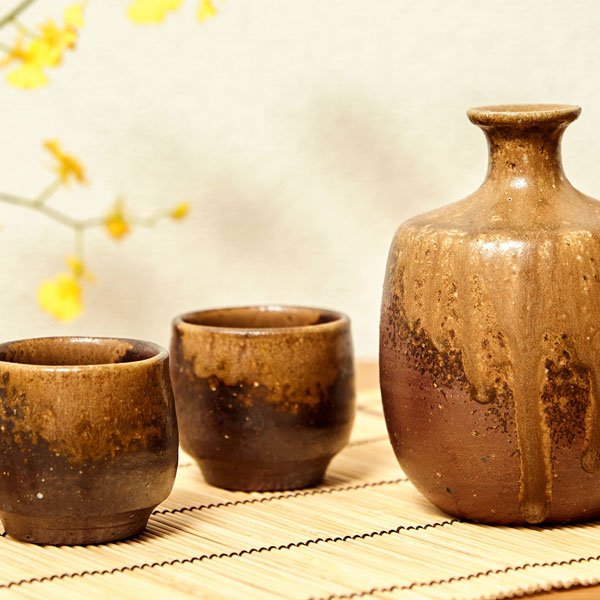

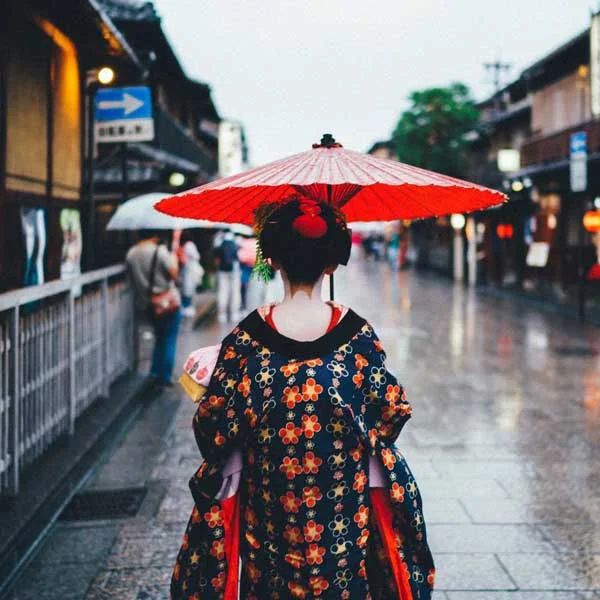

TRAVEL | April 26, 2024